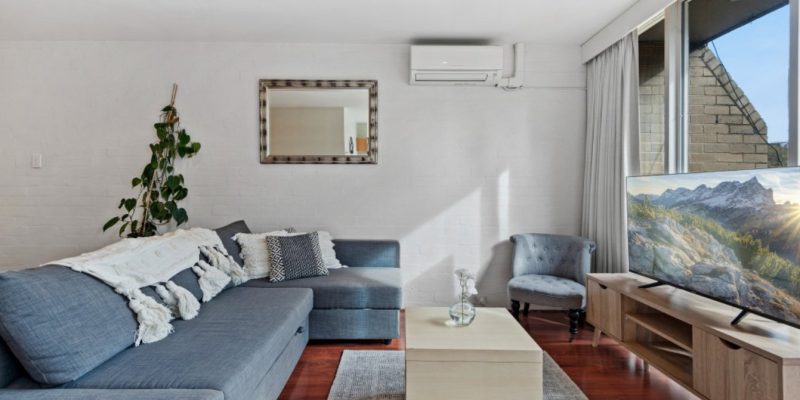Short term rentals have reshaped the hospitality industry, offering travelers flexibility, affordability, and a taste of authentic local life. With platforms like Airbnb and Vrbo dominating the landscape, millions of people are turning their properties into profitable ventures. This blog explores the fascinating history and dramatic evolution of short term rentals, from humble beginnings to a multi-billion dollar global market. Whether you’re a prospective host or an industry observer, understanding the dynamics of this growing sector is essential.
Historical Origins: A Century of Shared Spaces
Early Twentieth Century Beginnings
The roots of short term rentals can be traced back over a century to the early 1900s, when travelers exploring foreign lands often lodged within local homes. This allowed visitors to immerse themselves in unfamiliar cultures through direct engagement with welcoming hosts.
Mid-Century Shifts
While the concept took hold slowly, it was not until recent decades that the phenomenon experienced explosive expansion. As budget air travel became more commonplace and travelers increasingly sought distinctive experiences beyond standard hotels, demand grew for alternate accommodations.
The Birth of a Platform Revolution
This need birthed platforms such as Airbnb in 2008, revolutionizing the industry by establishing an accessible online marketplace connecting spare rooms and full properties with renters worldwide. No longer were private residences reserved solely for owners; traveling guests from around the globe could book stays with ease.
Furthermore, short term rentals provided supplemental income that proved vital during the recession of 2008 for many homeowners struggling financially. This economic catalyst helped transform vacation properties from occasional lodging into legitimate small business ventures. Today, they have evolved into a global multi-billion dollar sector, democratizing hospitality while fulfilling desires for authenticity and value.
Market Growth: Trending Statistics and Projections
The short term rental industry has seen explosive change over the last decade, with estimates suggesting it could be worth up to $113 billion by 2027. A staggering 1.9 billion guest visits to short term rental properties were logged in 2023 alone, demonstrating over 10% annual growth.
Platforms like Airbnb, Vrbo, and Booking.com continuously broaden their reach, attracting millions of hosts and travelers to sign up. As urbanization continues rising, cities globally house this influx, with major tourist spots meeting almost half lodging needs through short term rentals.
Travelers increasingly crave unique stays, a pattern boosting these rentals’ appeal over traditional hotels. Potential diversification exists within the sector, transitioning to niche segments like luxurious rentals, eco-friendly accommodations, and partnerships enhancing guest experiences through nearby activities and tours. Demand for authentic travel experiences ensures the short term rental industry will continue thriving in coming years.
Impact of Technology: How Apps Transform the Rental Landscape
Enhanced Connectivity and Global Reach
In the past decade, advancements in software and internet infrastructure have profoundly redefined the short term rental landscape. User-friendly platforms like Airbnb and VRBO grant hosts direct access to a global network of travelers, empowering property owners across the world to market extra rooms or standalone homes to an expansive audience.
Smart Tools and Seamless Interactions
Sophisticated algorithms optimize pricing strategies and yield actionable data insights in real-time, while seamless messaging functions facilitate smooth communication between guests and hosts. The rising ubiquity of smartphones and high-speed mobile networks has made exploring accommodation options effortless for travelers everywhere.
Automation and Property Management Software
Specialized property management software has emerged to automate recurring operations for hosts. Programs streamline booking, cleaning scheduling, and revenue tracking so owners can focus on guest satisfaction instead of administrative minutiae. This hybrid model fusing cutting-edge technology with hospitality best practices establishes personalized, attentive experiences as the new norm.
Maximizing Your Earnings: Strategies for Successful Short Term Rental Management
Crafting Listings that Capture Attention
The craft of eloquently advertising one’s lodging cannot be underestimated. A thoughtfully composed portrayal should immerse readers in what travelers can expect while stirring their emotions. Hosts must grasp their unique selling points and succinctly spotlight them within the opening lines.
More than just listing amenities, consider storytelling. Engage readers by detailing the experiences your space facilitates, whether hosting extended family, unwinding in serene surroundings, or savoring a historic cityscape. Spectacular pictures are invaluable; professionally-made visuals obtain significantly more attention.
Leverage SEO practices within your depiction. Keywords like “family-friendly,” “pet-friendly,” or “luxurious,” when paired with local attractions, improve your ranking and attract the appropriate audience. Address potential questions or concerns proactively to build trust and increase booking likelihood.
Pricing Strategies for Competitive Advantage
Hosts must closely monitor neighborhood trends and seasonal variances. Begin by benchmarking similar listings, surveying prevailing rates to strategically position yours. Implement dynamic tools reactive to demand fluctuations, allowing revenue maximization without sacrificing occupancy.
Weekly or monthly discounts entice longer stays and ensure steady bookings. Regularly reassess pricing, especially post reviews—positive feedback can justify higher prices. However, balance is crucial; unreasonable changes can undermine guest trust.
Your Guest Experience: Creating Memorable Stays that Earn Positive Reviews
Engagement and Communication
The guest experience extends far beyond supplying basic amenities. Every step from reservation through checkout is a chance to engage guests. Clear communication is critical—swiftly respond to inquiries, provide local guidance, and maintain an approachable tone.
Personal Touches and Self-Service Tools
Utilize self-check-in options like smart locks to grant guests autonomy. Consider welcome baskets with local snacks, custom recommendations for sights or eateries, and thoughtful stocking of essentials. Ask for feedback post-stay to refine services.
Positive testimonials establish an excellent reputation and attract future bookings. Exceptional experiences lead to relationships that support long-term success in the short term rental industry.
Navigating Legal Matters: Essential Regulations Every Host Must Know
Permits and Licenses: Ensuring Compliance in Your Locale
Hosting short term rentals involves a complex web of regulations. Many cities require permits to safeguard guests and owners. Hosts must understand local policies, including zoning designations and liability insurance requirements.
Noncompliance risks penalties or removal from rental platforms. Stay informed and follow community laws to maintain operations.
The Taxing Aspects: Grasping Temporary Housing Income and Duties
Income from short term rentals may be subject to sales tax, occupancy tax, and income reporting. Hosts should track all transactions meticulously. Consult a financial expert familiar with local regulations for guidance.
Maintain records of deductible expenses like utilities, maintenance, and advertising. This informed approach protects your investment from unexpected financial consequences.
Neighborhood Relations: Managing Local Community Expectations
Short term rentals can cause tensions in neighborhoods due to noise, congestion, or perceived quality-of-life declines. Building positive relationships with neighbors is vital. Offer contact details, establish quiet hours, and support local businesses to foster goodwill.
Engage in community discussions about rental regulations. Cooperation with neighbors strengthens your reputation and supports long-term success.
Designing the Ultimate Rental Space: Tips for Creating Inviting Atmospheres
Enhancing Aesthetics: The Role of Interior Design in Guest Satisfaction
Crafting a welcoming environment through thoughtful design is critical. Neutral hues paired with accent colors can make a space feel warm yet sophisticated. Use durable, stylish furniture and create multipurpose areas to meet diverse guest needs.
Include local art and décor to personalize the space and connect guests to the region. Smart design choices drive positive reviews and repeat bookings.
Smart Home Technology: Harnessing Innovation for Comfort and Protection
Smart locks, thermostats, and lighting enhance usability and security. High-speed internet is a must—consider offering streaming services for added appeal. These features improve guest comfort and streamline host operations.
Smart temperature settings also conserve energy, aligning with eco-conscious practices. Overall, technology plays a key role in satisfaction and efficiency.
The Minor Things Matter: Thoughtful Touches that Make a Major Difference
Small details leave lasting impressions. Stock high-quality toiletries, fresh linens, snacks, coffee machines, and local guides. Handwritten welcome notes or personalized greetings foster connection.
Such gestures contribute significantly to the guest’s overall perception and loyalty. Focusing on thoughtful touches helps ensure five-star reviews and returning guests.
Short term rentals have transitioned from a novel idea to a central pillar of the modern travel economy. By understanding the industry’s history, leveraging the right technology, and creating unforgettable guest experiences, hosts can thrive in this vibrant market. Whether you’re just beginning or looking to refine your existing approach, the opportunities in the short term rental space are vast and continually evolving.











Comments